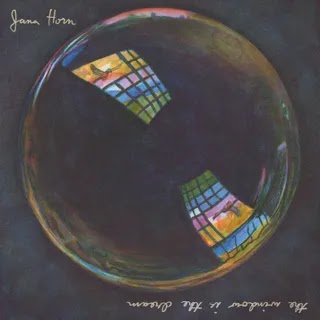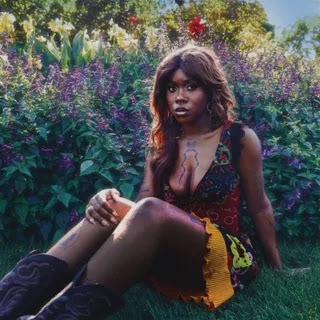Each Sunday, Pitchfork takes an in-depth look at a significant album from the past, and any record not in our archives is eligible. Today we revisit Bobbie Gentry’s 1968 album, a daring, atmospheric, and oft-overshadowed Southern classic.
Bobbie Gentry turned 25 in July 1967, the month she was swept up in one of the great how-on-Earth stories in pop history. Back in the winter, she was just another unknown songwriter who recorded a demo for Capitol Records. With her acoustic guitar and thick alto, she narrated her suicide-mystery story-song, “Ode to Billie Joe,” thinking it might be a good fit for Lou Rawls. Instead, Capitol added some strings and released the record as-is. It spent four weeks at No.1 and Gentry won Grammys for Best New Artist, Best Pop Vocal, and Best Solo Vocal. “Ode to Billie Joe” was covered by Tammy Wynette, Diana Ross, the Ventures, and dozens of others, translated to French and German, then adapted as a movie. The song’s tragic setting is the Tallahatchie Bridge, a real structure near Greenwood, Mississippi, which was soon overrun by visitors who wanted to jump in tribute.
Gentry’s Ode to Billie Joe LP was quickly assembled and released in August, and by October it overtook Sgt. Pepper’s atop the Billboard album chart. Its cover was the precise opposite of that modern art monument. It showed her as a barefoot country gal in jeans and a t-shirt, sitting on a rural bridge with an acoustic guitar. This was accurate enough, since Gentry, born Roberta Lee Streeter, grew up near Woodland, Mississippi, a town of barely 100 people. But as “Ode to Billie Joe” became a global phenomenon, the song that will inevitably appear in every headline of Gentry’s eventual obituaries, that image hid more than it revealed. Only the singer’s trademark bouffant gestured at her worldliness: she left Woodland for California at age 13, spent years as a singing partner with her mother, then had additional stints as a philosophy major, model, and conservatory student.
The song and the record were both mature statements and recognized as such. As a piece of writing, “Billie Joe” is evocative and mysterious, and its central mystery is left unresolved. Gentry’s singing was a marvel as well. She had a husky, nearby voice and total expressive control of it. She was perfectly suited to story songs, and much of her debut album sounded pleasingly like the big hit: Gentry’s sensuous rasp narrating Southern scenes above her herk-and-jerk rhythmic patterns as a delicate swirl of chamber strings, hand percussion, brass, and rock backing tracks come and go. Ode to Billie Joe was nominated for Album of the Year, but by the time of the ceremony in February 1968, Gentry was already finished with her follow-up, a statement of artistic and personal purpose that was a self-conscious turn away from bare feet and a t-shirt.
It's clear just from the title that Bobbie Gentry Performs the Delta Sweete is a more complex thing. It presents a cohesive work with a name that suggests “an evening with,” a sort of audio tour of Gentry’s home territory through covers, folk tunes, and originals. There’s the pun, too, as Gentry announces a suite of songs and a new glammed-up style that jettisoned everything about her previous image except the bouffant. She appeared on the cover as a forlorn reverse silhouette, framing a picture of her grandparents’ dilapidated Mississippi shack, and for the next decade she presented herself in bell-bottom jumpsuits, cat’s-eye makeup, and towering hair.
The Delta Sweete was released about six months after Ode to Billie Joe, which itself was rushed to completion in the wake of the single’s runaway success. Since the follow-up record lacked a hit song and never rose higher than No. 132, the easy assumption was artistic overreach: Gentry tried something too pretentious and audiences wouldn’t follow. That seemed to be the attitude of her record labels in the U.S. and UK, who renamed, resequenced, and reissued the album only a few years later before letting it go out of print for decades. It also seemed to be Gentry’s own attitude, since she took a decisive pop-oriented turn in response. But that narrative overlooks the strangeness of Ode to Billie Joe, both in its beguiling content and its wild unlikeliness as a pop culture phenomenon. And it dismisses the astounding depth and range of talent that it took for Gentry to create these statements within months of each other. She never made an album like her first two ever again, but in retrospect they seem more alike than they must have at the time, and equally unlike anything that came before.
Delta Sweete opens with its lead single, “Okolona River Bottom Band,” just as Billie Joe opened with its most up-tempo moment, “Mississippi Delta.” Both function as an unofficial overture, introducing her voice and the scope of instrumentation, though in “Okolona,” Gentry’s butterscotch vocal tone slips into a dark cackle, like she’s compelling listeners to join her group in the underworld. From there, both records move into gentler, more textured moods. Billie Joe presented each song in its own customized standalone arrangement, whereas on Delta Sweete they overlap and bleed into one another. The first side proceeds to the Jimmy Reed blues tune “Big Boss Man,” which sounds almost like a field recording, with only a tinny-sounding acoustic guitar and near-spoken vocals. She then moves into her own stunning “Reunion,” reenacting a family picnic through an overlapping sampled chorus of antic in-character voices and chants in the round.
After a devilish cover of the Bukka White prison song “Parchman Farm,” Gentry’s own “Mornin’ Glory,” sung to a lover as if they are still in bed, showcases her voice’s disarming intimacy. When she hits her lowest notes here, on the line “Where’d you spend the night?” the sound is closer to an ASMR exercise than a country croon. And with its blend of strings, nylon guitar, melodica, and glimmering bells, this gorgeous love song evokes Os Mutantes’ “Baby” or Dusty Springfield’s “Breakfast in Bed” more than Loretta Lynn. The side closes with another original, “Sermon,” with Gentry rapid-fire preaching over a hopping gospel track. Delta Sweete doesn’t have a narrative, it has a flow, an almost DJ-like movement across ideas and feelings.
The record’s second side leans even more heavily into atmospherics. Two covers, “Tobacco Road” and the geographical outlier “Louisiana Man,” are the sole feints toward pop. (The latter is performed in a marvelous uptempo Cajun-flavored arrangement that I would swear influenced Harry Nilsson’s “Coconut.”) But the rest of these songs are mere wisps of melody and hazy atmosphere. The dreamlike sequence of “Penduli Pendulum,” “Jessye ‘Lizabeth,” and “Refractions” is an orchestral pop achievement to match the Left Banke or Love. The closing song, “Courtyard,” resembles the mystical contemporary folk that Fairport Convention were making four-thousand miles away. It is a story song, yes, but in the Astral Weeks sense, not “Harper Valley P.T.A.”
But consider: Bobbie Gentry was writing songs to match Van Morrison and Tom T. Hall when those men were making the music that defined their careers. She was a nobody in the spring of 1967, and by Christmas, she had recorded two divergent but equally visionary musical-literary statements about the South. That would be accomplishment enough even if the first one didn’t become a cultural touchstone.
“Ode to Billie Joe” anticipated late-’60s Southern-story hits like Tony Joe White’s “Polk Salad Annie,” the Band’s “The Night They Drove Old Dixie Down,” and about half of Creedence Clearwater Revival’s output. All those acts specialized in their unique brand of twangy funk-country, which became the lingua franca of mainstream rock in the early 1970s. But Gentry’s Latin-accented signature guitar rhythm prefigured them all, just as her enormous fame made her the face of crossover country-rock before the Byrds adopted a pedal steel or the Stones heard Gram Parsons.
If The Delta Sweete made less of an obvious or visible impact, it’s worth noting that the scruffier end of the country world became a landscape of concept albums in the ’70s, starting with Willie Nelson’s Yesterday’s Wine and encompassing Merle Haggard’s prolific run of tribute LPs, Kenny Rogers’ The Ballad of Calico, Terry Allen’s Lubbock (On Everything), and the Waylon Jennings-led Civil War operetta White Mansions. Theme records were already a tradition in the genre going back at least as far as Marty Robbins’s 1959 Gunfighter Ballads and Trail Songs, but these new records, as well as Dolly Parton’s My Tennessee Mountain Home, were often feats of storytelling, not only song curation. They were works of reminiscence and imagination about a vanished South, suffused with mythic imagery and audio-theatrical production flourishes.
Gentry followed her theatrical muse but never made such an overtly thematic album again. Within the next three years she recorded four more solo albums for Capitol plus a duet record with Glen Campbell. Her LP output stopped in 1971, but as foremost Gentry expert Tara Murtha describes it, her record-making “was only the beginning of her pioneering career” as a broadcaster (hosting variety shows on the BBC and CBS), Armed Forces Radio DJ, and a decade-long song-and-dance attraction in Vegas.
What thrills most about The Delta Sweete now is that sense of adventurousness. Gentry’s chord and rhythms voicings are rarely obvious, and her voice sounds almost uncomfortably close in the mix and low in her range. The quiet moments are whispered and meditative, the busy ones are alive with a dozen voices. She recorded this album as she was in the process of becoming an enormous star, but it doesn’t feel indulgent. Instead, it is the slightly more experiential back half of a shockingly prolific and influential year’s work, as if Ode to Billie Joe were Side A of Abbey Road and The Delta Sweete was the Sun King medley. She made her own Southern Hounds of Love in just a few months.
Gentry is alive today, though it seems relevant to say that few people know where. She hasn’t released music or made any public appearances since the early 1980s, not even as country music has come to an attempted overdue reckoning for its gender imbalances. Not even as other “lost” or legendary musicians of her era have found second or third lives as documentary subjects and memoirists. Not even as Mercury Rev released an album-length cover of The Delta Sweete a few years ago featuring vocals from Lucinda Williams, Margo Price, and other contemporary singer-songwriters. Few artists have had such an outsize effect on the shape of “Americana” music in such a short period of time, and few have paid so little heed to the restrictions of that lineage. The Delta Sweete is her least restricted statement of all.
















0 comments:
Post a Comment